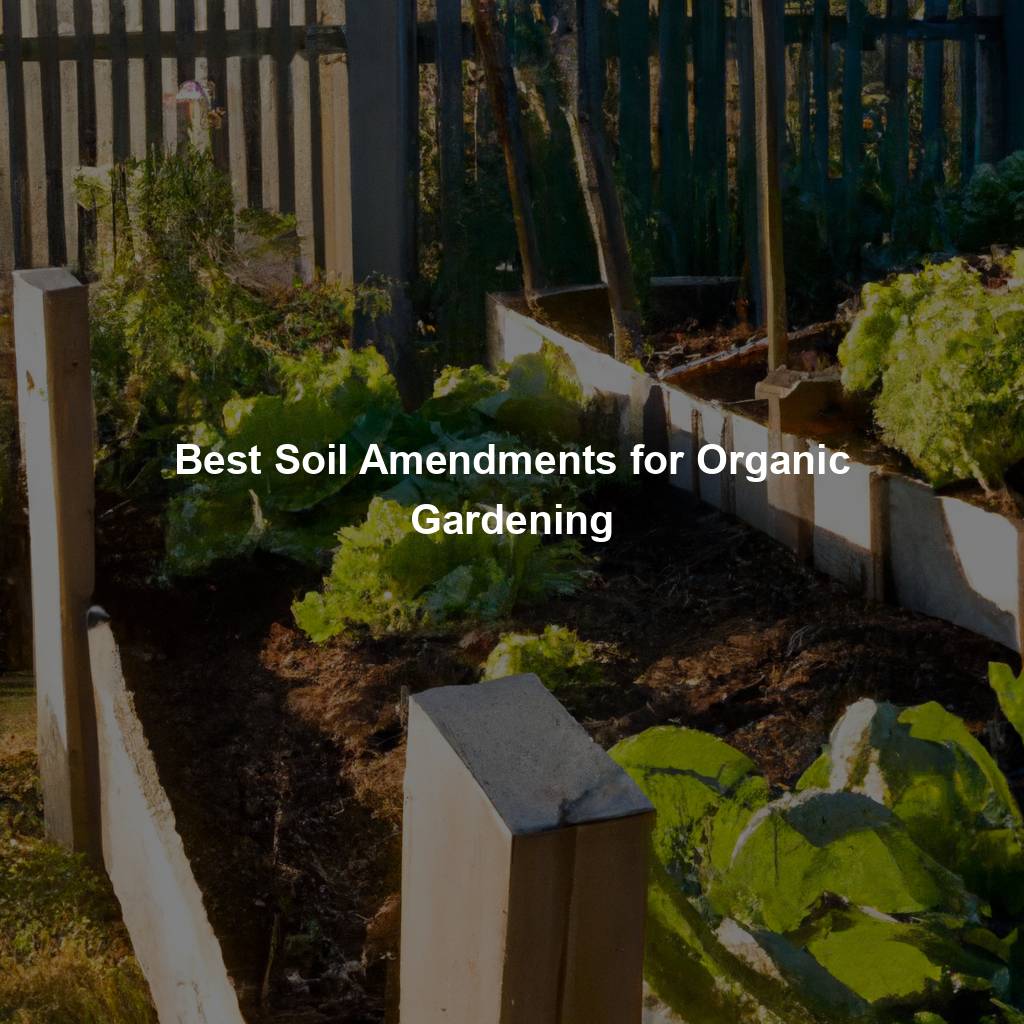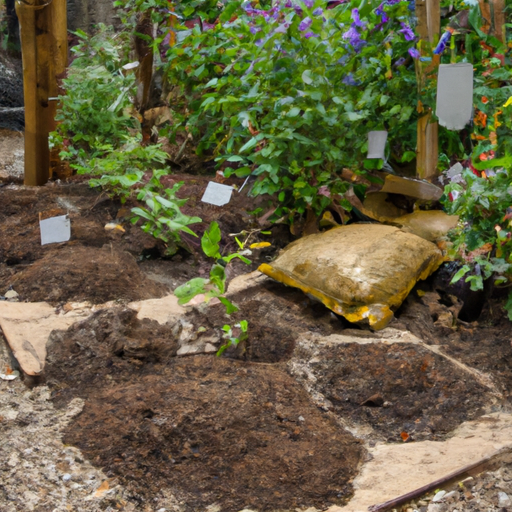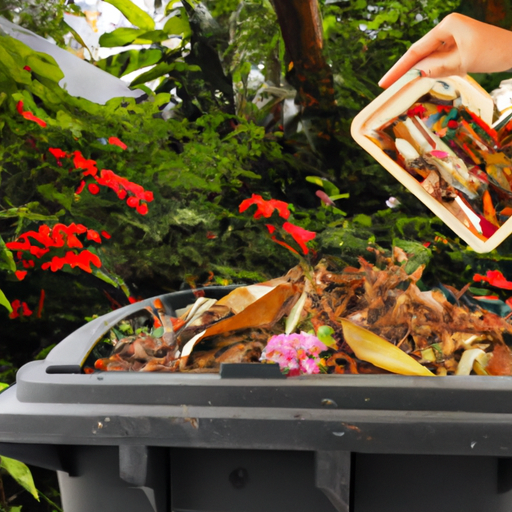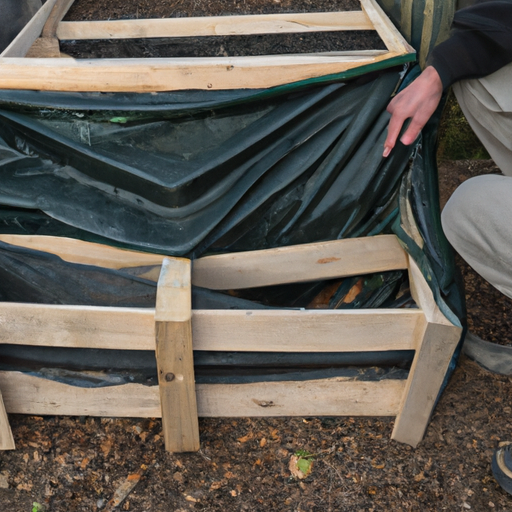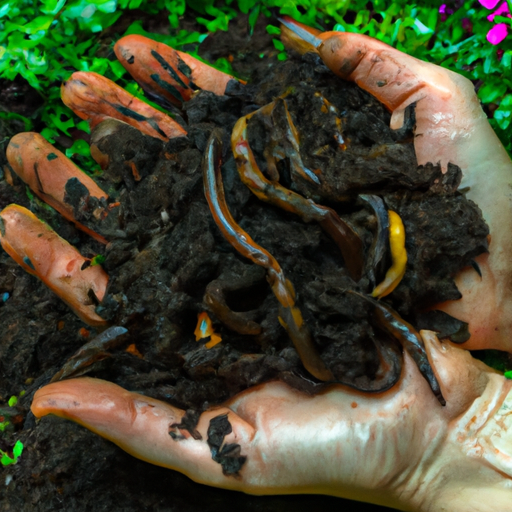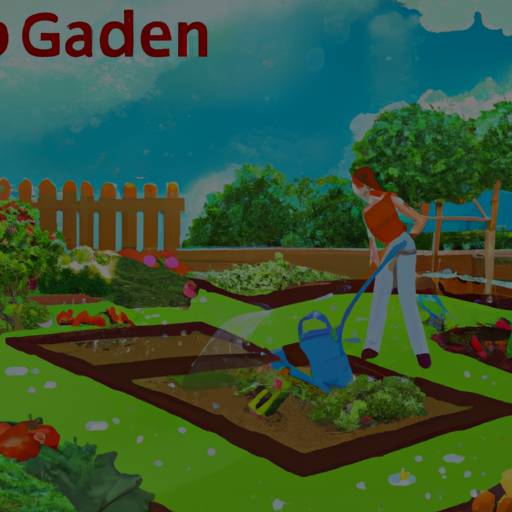As a Master Gardener, I am often asked about the best practices for organic gardening. One of the most important factors in successful organic gardening is soil health. The quality of your soil plays a vital role in determining how well your plants will grow and produce.
To improve soil health, it’s essential to add amendments that can provide nutrients, improve drainage, and increase water-holding capacity. However, with so many different options available on the market, choosing the right amendments for your garden can be overwhelming.
In this article, we’ll explore some of the best soil amendments for organic gardening that are readily available and easy to use. From compost to cover crops, these amendments will help you create healthy soil and achieve thriving plant growth without relying on harmful chemicals or synthetic fertilizers.
The Importance Of Soil Health In Organic Gardening
As a Master Gardener, I cannot stress enough the importance of soil health in organic gardening.
Healthy soil is essential for growing healthy plants and providing them with the nutrients they need to thrive. Additionally, it can also act as a natural pest control method, helping to keep harmful insects at bay without the use of chemicals.
The benefits of healthy soil go beyond just plant growth; it also helps improve water retention, prevent erosion, and promote biodiversity.
By focusing on improving your soil’s health, you’re not only benefiting your garden but also contributing to a healthier ecosystem overall.
So don’t overlook this crucial aspect of organic gardening – prioritize building and maintaining healthy soil for long-term success!
Using Compost To Improve Soil Nutrients
Did you know that composting can reduce greenhouse gas emissions by diverting organic waste from landfills? Plus, it’s a great way to improve soil nutrients in your organic garden.
Composting techniques vary depending on the materials used and desired outcome, but generally involve combining nitrogen-rich ‘green’ materials like grass clippings and kitchen scraps with carbon-rich ‘brown’ materials such as leaves or wood chips. The key is achieving the right balance of these elements for optimal decomposition.
Once finished, compost can be added to soil amendment ratios to help retain moisture, suppress weeds, and provide essential nutrients to plants. As a Master Gardener, I highly recommend incorporating compost into your gardening routine for healthier plants and a more sustainable lifestyle.
Cover Crops For Improved Soil Structure
Now that we have covered how compost can improve soil nutrients, let’s move on to another important aspect of organic gardening: cover crops for improved soil structure.
Using cover crops is a great way to not only enrich the soil but also prevent erosion and suppress weeds. However, it’s essential to understand both the benefits and drawbacks of using cover crops before choosing which ones to plant in your garden.
Some popular cover crops include:
– Clover: adds nitrogen, improves soil texture
– Buckwheat: attracts beneficial insects, suppresses weeds
– Rye: prevents erosion, reduces compaction
– Radish: breaks up heavy soils, scavenges excess nutrients
While these are just a few examples, there are many other types of cover crops available that may suit your specific needs better.
It’s crucial to research each crop thoroughly before planting to ensure they will work well with your existing plants and soil type. Additionally, some cover crops can become invasive if left unchecked or planted too closely together.
Incorporating cover crops into your organic gardening routine can provide numerous benefits but requires careful consideration and planning.
By understanding their potential advantages and limitations as well as selecting appropriate varieties based on your unique situation, you’ll be able to make informed decisions about utilizing this effective technique in your garden without negatively impacting the environment or surrounding ecosystems.
Vermicomposting For Soil Health And Fertility
Like a magician’s hat, vermicomposting can produce an abundance of soil health and fertility. Through vermiculture techniques, worm castings become the star of the show as they add vital nutrients to gardens. Worms are known for their ability to break down organic matter into nutrient-rich castings that plants love. These castings contain high levels of nitrogen, phosphorus, and potassium, which are essential elements for plant growth. In addition to providing these crucial nutrients, worm castings also help improve soil structure and water retention capabilities. To showcase the benefits of using worm castings in your garden, here is a table outlining some key comparisons between traditional composting and vermicomposting methods:
| Composting Method | Time Required | Nutrient Levels |
| — | — | — |
| Traditional Composting | 6-12 months | Moderate |
| Vermicomposting | 2-3 months | High |
As you can see from this comparison, vermiculture techniques offer faster results with higher nutrient levels than traditional composting methods. By adding worm castings to your garden beds or containers, you’ll be giving your plants a healthy boost while improving the overall quality of your soil. Don’t hesitate to try it out for yourself!
Using Mulch For Water Retention And Weed Control
After enriching your soil with vermicomposting, it’s time to focus on maintaining its health and fertility. One of the best ways to do this is through mulching techniques. Mulch not only helps with water retention but also provides weed control while enhancing the overall look of your garden. It’s a sustainable gardening practice that benefits both plants and the environment.
Here are three types of mulches you can use:
1) Organic Mulch – Made from natural materials such as leaves, grass clippings, straw or wood chips.
2) Inorganic Mulch – Made from man-made products like stones, gravel or rubber mats.
3) Living Mulch – Planted groundcovers like clover or creeping thyme which provide similar benefits to traditional mulch.
By using these different types of mulches in combination with one another, you can create a layered approach to improve soil health over time. Additionally, by incorporating sustainable gardening practices into your routine such as composting and crop rotation, you’ll be able to reduce waste and maintain a healthy ecosystem for your plants to thrive in without having to rely on harmful chemicals or pesticides.
Remember that when it comes to organic gardening, every little bit counts towards creating a healthier planet for all living things.
Frequently Asked Questions
Can I Use Synthetic Fertilizers In My Organic Garden?
As a Master Gardener, I always remind my fellow gardeners of this age-old adage: ‘you reap what you sow.’
This is especially true when it comes to fertilizers.
When considering the use of synthetic fertilizers in an organic garden, one must weigh the benefits of using organic fertilizers against the harmful effects that synthetic ones can have on soil health.
Organic fertilizers are made from natural sources and provide long-lasting nutrients to plants without disrupting the delicate balance of microorganisms in the soil.
Synthetic fertilizers, on the other hand, may provide instant gratification but their overuse can lead to imbalanced nutrient levels and ultimately harm soil health.
As such, if you’re committed to organic gardening practices, it’s best to stick with all-natural options for your soils’ sake – after all, healthy soil leads to bountiful harvests!
How Often Should I Test My Soil For Nutrient Levels?
As a Master Gardener, it is important to regularly test your soil for nutrient levels.
Soil testing frequency varies depending on the type of plants you are growing and the health of your soil. Generally, it is recommended to test your soil every 3-4 years, but if you notice any signs of nutrient deficiency or excess, such as stunted growth or yellowing leaves, then you should test more frequently.
Optimal nutrient levels in soil can greatly improve plant growth and yield. By testing your soil regularly and amending accordingly, you will be able to create a healthy foundation for your organic garden to thrive.
Are There Any Natural Ways To Control Pests In My Garden?
As a Master Gardener, I understand the frustration of pests invading your garden. But fear not, there are natural ways to control them without resorting to harmful chemicals.
Companion planting is one technique that can work wonders in keeping pests at bay while promoting healthy growth for your plants. By pairing certain plants together, you create an environment that repels insects and promotes beneficial organisms like ladybugs and praying mantises.
Additionally, some herbs such as basil and mint have natural repellent properties that ward off unwanted critters.
Natural pest control may take a bit more effort than chemical alternatives but it’s worth it for the health of your garden and the planet.
Can I Use My Own Kitchen Scraps For Vermicomposting?
Absolutely! Vermicomposting is a fantastic way to reduce waste and maximize yield in your organic garden.
And the best part? You can use your own kitchen scraps as food for the worms.
All you need is a bin, some bedding material (like shredded paper or leaves), and of course, red wiggler worms.
As they eat through your kitchen scraps, they create nutrient-rich castings that make an excellent soil amendment for your plants.
Plus, vermicomposting can help improve soil structure and water retention.
It’s truly a win-win for both your garden and the environment.
So start saving those scraps and give vermiculture a try!
Is It Necessary To Rotate Crops In My Garden, Even If I Am Using Organic Soil Amendments?
Crop rotation is essential for any successful organic garden, regardless of the type of soil amendments used. While it’s true that using organic soil amendments can improve soil health and increase crop productivity, rotating crops is still important to prevent nutrient depletion and pest buildup in the soil.
Crop rotation benefits include improved soil structure, increased diversity of beneficial microorganisms and reduced risk of diseases and pests. Soil microorganisms play a crucial role in breaking down organic matter into nutrients that plants can use, so it’s essential to maintain their populations by rotating crops regularly.
By incorporating these practices into your gardening routine, you’ll be sure to have a thriving organic garden year-round!
Conclusion
In conclusion, as a Master Gardener, I highly recommend using organic soil amendments to enhance the health and productivity of your garden.
Synthetic fertilizers may seem like an easy fix, but they can actually harm the environment and diminish soil quality over time.
To ensure optimal growth for your plants, it’s important to regularly test your soil for nutrient levels and adjust accordingly with natural additives such as compost or worm castings.
Additionally, controlling pests naturally through companion planting or beneficial insects is not only safer for you and the ecosystem, but also promotes biodiversity in your garden.
Remember, even if you are utilizing top-notch organic soil amendments, crop rotation is still crucial to prevent diseases from building up in the soil.
By incorporating these practices into your gardening routine, you’ll be able to reap bountiful harvests while maintaining a sustainable approach that benefits both yourself and Mother Nature.
